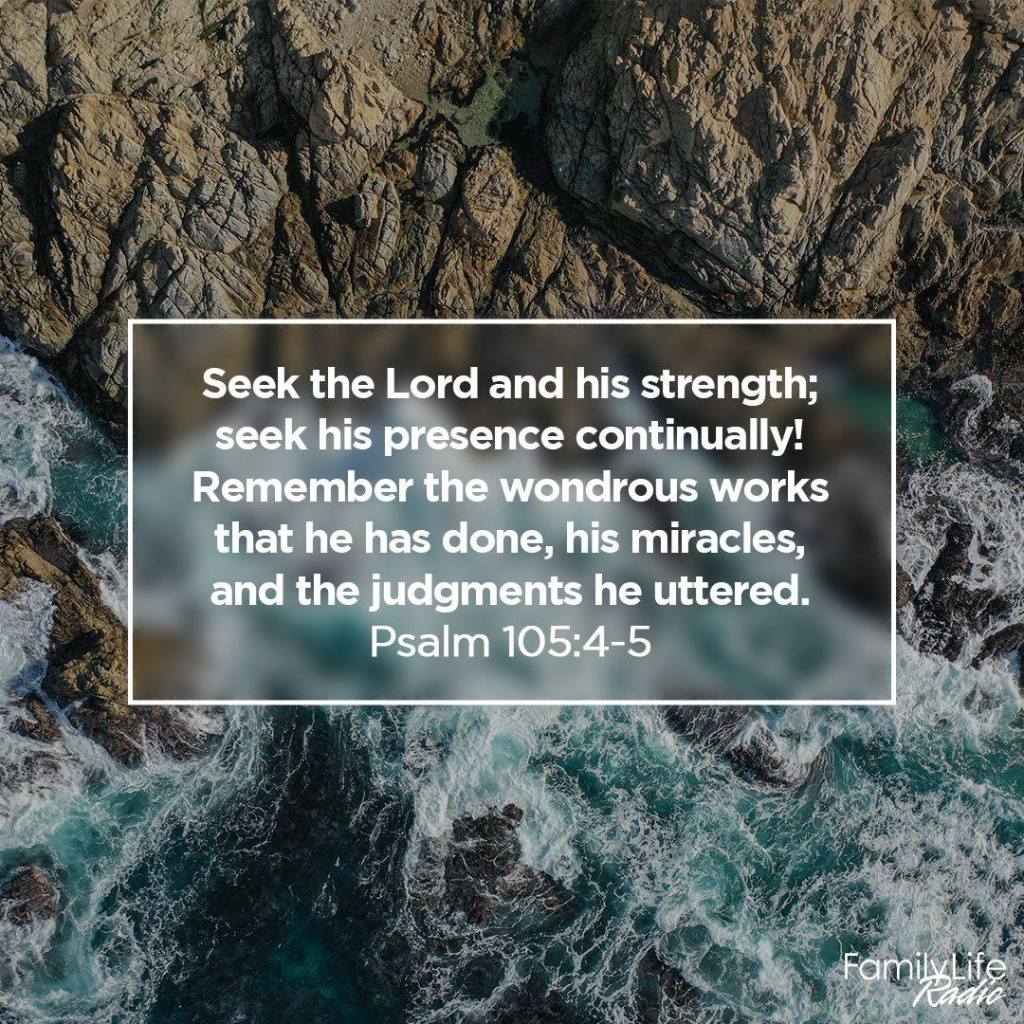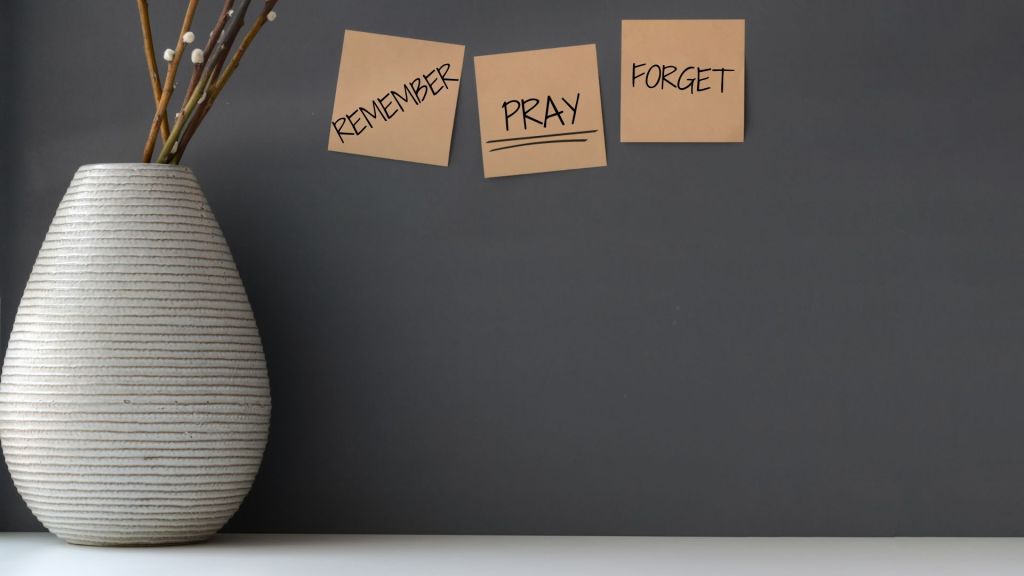Revisiting Good Friday…
Posted in Uncategorized | Leave a Comment »

And he said to them, “O foolish ones, and slow of heart to believe all that the prophets have spoken! Was it not necessary the Christ should suffer these things and enter into his glory?” Luke 24:25-26
Have you ever found that when you’re listening to someone speak, whether you’re tracking along or not, if the speaker says, “Let me tell you a story,” suddenly you’re sitting up straighter, your antennae are up, and you are fully focused? Like, ‘Hey! We’re going to hear a story! This is going to be good!’
I believe humans are wired for story, and I also believe this is no accident on God’s part. Story has been around since the beginning of time. The term ‘Hero’s Journey’ was noted by American writer and mythologist Joseph Campbell in his 1949 book, “The Hero With a Thousand Faces.” The mythical Hero Story has been around since long before the time of Jesus. Campbell noted that many mythical hero stories follow the same narrative stages, no matter which culture or time period they come from. In the Hero Story, the protagonist, or Hero Archetype, faces challenges and obstacles, but he ultimately overcomes them to achieve his goal. Common elements include: the call to adventure, crossing the threshold, tests and enemies, the ordeal, the resurrection, the return, and the freedom to live.
In Luke 24, we meet a deeply depressed Cleopas and his companion as they travel the road to Emmaus. They are joined by the resurrected Christ, though they don’t recognize him. We’ll pick up the account in verse 18:
18 Then one of them, named Cleopas, answered him, “Are you the only visitor to Jerusalem who does not know the things that have happened there in these days?” 19 And he said to them, “What things?” And they said to him, “Concerning Jesus of Nazareth, a man who was a prophet mighty in deed and word before God and all the people, 20 and how our chief priests and rulers delivered him up to be condemned to death, and crucified him. 21 But we had hoped that he was the one to redeem Israel. Yes, and besides all this, it is now the third day since these things happened. …
(v25) And he said to them, “O foolish ones, and slow of heart to believe all that the prophets have spoken! 26 Was it not necessary that the Christ should suffer these things and enter into his glory?” 27 And beginning with Moses and all the Prophets, he interpreted to them in all the Scriptures the things concerning himself. 28 So they drew near to the village to which they were going. He acted as if he were going farther, 29 but they urged him strongly, saying, “Stay with us, for it is toward evening and the day is now far spent.” So he went in to stay with them. 30 When he was at table with them, he took the bread and blessed and broke it and gave it to them. 31 And their eyes were opened, and they recognized him. And he vanished from their sight. 32 They said to each other, “Did not our hearts burn within us while he talked to us on the road, while he opened to us the Scriptures?”
Cleopas and his friend had been with Jesus as he spoke to the crowds, and they told this ‘stranger’ that Jesus had been ‘a prophet mighty in deed and word.’ They had heard him speak, but somehow, they completely missed the point. It seems that all they heard was the promise of a Redeemer, setting their imaginations into hyperdrive and planting the hope that Israel’s long-awaited Hero had finally come onto the scene to rescue them from their current difficulties. We know this because they said they had hoped God would rescue or redeem Israel. They had desperately hoped this Redeemer would solve their now problems. But either they hadn’t been paying attention, or they just flat out didn’t believe what both the scriptures and Jesus had said was going to happen.
Or maybe they didn’t want to believe because the things he’d said didn’t make sense. It just didn’t match the narrative of the mythical Hero Story. They longed for a conquering king. They were probably hoping for a first century version of Die Hard’s John McClane to come busting into the Governor’s Palace, guns blazing. A hero, in their understanding, faces the evil enemy, throws him off a skyscraper, and sets the hostages free. He might get a little bloody, but he triumphs and saves the day. This is probably the age-old scenario their hearts were set on. They were, as Bonnie Tyler sang, “holding out for a hero.” (If an 80’s song is now stuck in your head, you’re welcome. 😉 )
Someone ‘holding out for a hero’ might call the story of a suffering, dying savior ‘foolish.’
1 Corinthians 1:18 says For the message of the cross is foolishness to those who are perishing, but to us who are being saved it is the power of God.
So who’s the real fool?
Jesus had spoken plainly to his followers of what was to come (as in Matthew 16:21, John 10:18) but even though he had spoken plainly, Cleo and his friend hadn’t seemed to hear him. Why?
Jesus tells us in Luke 24:25-26 “O foolish ones, and slow of heart to believe all that the prophets have spoken! Was it not necessary that the Christ should suffer these things and enter into his glory?”
The Amplified version says: And [Jesus] said to them, O foolish ones [sluggish in mind, dull of perception] and slow of heart to believe (adhere to and trust in and rely on) everything that the prophets have spoken!
It almost seems like they were choosing to be dense because they simply didn’t want to believe such a tragic scenario. Because who ever heard of a suffering, dying savior? What kind of Hero would willingly subject himself to being betrayed, disowned, deserted by his closest friends, arrested, falsely accused, conspired against, condemned, beaten, whipped, forced to carry his own instrument of execution, insulted, cursed, humiliated, nailed to a tree as others heaped insults on him, then left to die a slow, excruciating death like a criminal, or worse, like a helpless victim?
By common mythology standards, this was NOT a Hero Story. This was a Tragedy.
But as the resurrected Christ walked along the road with these dejected men, he turned the pages of this apparent Tragedy back to the beginning and showed them how God, the Master Storyteller, had written the most Epic Hero Story of all time. And as that story unfolded, their ‘hearts burned.’ They begged Jesus to stay – presumably so they could hear more of this heart-pounding story. The story that wasn’t over! The story that they were part of. The Epic Hero Story that was turning out to be an Epic Love Story.
“But God shows his love for us in that while we were still sinners, Christ died for us.” Romans 5:8
The Bible is filled with passages telling us that Love is the #1 driving force behind God’s amazing redemption story (see 1 John 3:1, 1 John 4:9-10, John 3:16, Eph 2:4-5, Eph 3:19, Isaiah 54:10, Galatians 2:20 for starters).
One final thought: the Old Testament contains numerous accounts of people doubting or questioning what God had promised, like Abraham and Sarah, Zechariah, and the exiles in the wilderness. And many times, questioning God brought devastating consequences, like Adam and Eve. But after Christ’s sacrifice and resurrection, this story of 2 blockheads doubting God’s promised plan of redemption ended not with devastating consequences, but with a beautiful, restorative moment as Jesus lovingly, graciously showed them how to look into God’s word and “see” the bigger picture. He opened their eyes to see the unfolding of God’s amazing plan of redemption. He showed them how God so loved the world that he gave his only Son so that whoever believes in Him would not perish but have eternal life. He showed them a Savior who willingly paid the penalty for their sins, a Savior whose story didn’t end on a wooden cross, but one whose death had conquered the sin barrier between God and man and whose resurrection would change things forever. He showed them how God’s plan all along was to send his only beloved Son to rescue the captives and set the prisoners free, and that this had been completed. It was finished! He was alive! And before making his final ascent into Heaven, he took time to encourage their hearts and strengthen their faith. What love! What compassion! What a Savior!
Elizabeth said it best to Mary in Luke 1:45 (NIV) “Blessed is she who has believed that the Lord would fulfill his promises to her!”
Has there been a time that you doubted or questioned God’s promises or his unfailing love? What advice would you give someone who is struggling to believe the promises in God’s word?
Posted in Biblical Reflections, Encouragement | Tagged faith, God's love, Hope, Jesus, Resurrection, trust | Leave a Comment »
I guess Grace and Forgiveness are my life’s constant theme. Grace and Forgiveness are at the core of pretty much everything I have to say, from stories and novels, to plays, to blog posts, to podcasts. This doesn’t mean I’ve got Grace and Forgiveness mastered. Far from it. It means I’m in a constant state of learning and practicing in this life-lab, trying to grow in or be transformed by them, trying to be more like Jesus.
I guess I’m a professional student of God’s amazing grace.
A woman passed me on the road this morning headed the other way at top speed on an electric razor, weathered, far too thin, scabby, pale, toothless. Probably using the only transportation she can legally drive. Too hard to tell her age, as she was clearly suffering from long-term drug abuse. I hurt for her, the cold, brutal slavery she must struggle beneath, then the thought hit me: That could be me. At 16, I was headed into drug abuse and all the bondage attached to it when I met Jesus and he took hold of my life. There, but for the amazing, incomprehensible grace of God, go I.
The grace of God is powerful. It’s kind of ruthless in its persistence. And yet I still find the need to constantly be reminded of the grace I’ve been shown, the grace that is mine, the grace I’m obligated-commanded-duty bound-privileged to show to everyone around me. We need grace. Every last one of us. Why is it so easy to accept God’s grace and forgiveness, and then be so miserly with it when other humans display their weaknesses or thoughtless, selfish behavior, their flaws and imperfections? As if I don’t have flaws or weaknesses, as if I don’t need a little mercy from time to time?
Life is a constant reminder to me that I need to show more grace, need to replace impatience with generosity of heart, judgment with compassion, words with attentive silence. I guess I’ll be talking about Grace until I die, because I’ll never get to the last layer of selfish self that needs peeled away until I meet Jesus.
Learning to be a conduit of God’s grace is a life-long pursuit.
The majority of my posts on this blog are tagged “grace.” Here’s proof: https://camilleeide.wordpress.com/tag/grace
And here’s one on the topic of Impossible Grace: https://camilleeide.wordpress.com/2019/09/13/impossible-grace/
Posted in Biblical Reflections, Encouragement | Tagged grace | Leave a Comment »
June being the month of love, I’m musing on the fact that only God possesses (and offers without limit) the inexhaustible love and grace humans desperately need in order to live and succeed in lasting, loving relationships.
The more the world says “love yourself” and “you deserve better”, the more I cringe. We love ourselves plenty, guys. And we need to rethink what we deserve, maybe take a closer look in the mirror before we decide we deserve an upgrade in any area of relationship.
I know, who wants to look that deep? Do you enjoy digging into what’s really, truly lurking in your own heart of hearts? I don’t.
Here’s the incredible thing: God already sees it all and knows that the human heart is desperately wicked and deceitful (Jer 17:9). He knows and sees ALL of our junk, and in SO much more clear detail than we ever can or want to. AND YET HE LOVES US. This blows my mind.
Uplifting thoughts, I know. But there’s an upside here, trust me.
God’s grace is amazing and unearnable and inexhaustible, which is awesome news both for us and for the bonehead who just stole the parking space we were aiming for. As believers, we have the incredible offer of full pardon, of forgiveness, of a grace that says, “I love you because I am love, not because you check all my boxes.” Grace that forgives AND forgets — FULLY, not partially, not ok, I forgive you today but when you tick me off again Ima bring up ALL your mistakes with both barrels.
You and I, believer, receive a ridiculous amount of much needed grace from God, and not just to benefit ourselves, but to offer just as fully and and as unconditionally to those around us. They’re imperfect, and so am I.
And, sorry, so are you.
And let’s be honest (might as well since we’ve come this far): There’s an honor system in regard to our own standards, our approval checkoff list. My standards of virtue in others should not be higher than the standards I expect from myself. Ok, so far, so good. But… we trust that we, the sole gatekeepers of our own integrity, are holding ourselves to our standards of virtue in good faith. Are we meeting them perfectly? Mostly? A few misses here and there? When we miss the mark, do we cut ourselves some slack and move on?
And do we respond with the same amount of grace to others?
The good news is that though we really do have to deal with the flaws and weaknesses of others, we as Christians are not left to our natural resources and human impulses (thank God) to deal with them. We have a Savior who knows and sees all, who loves us and gave his life for us, and who sent his Spirit to live in us, who cleanses, renews, and empowers us to live and to love like he does. The Spirit of the God of Grace lives in me—which I need to remember when my buttons get pushed. I am not good. But he is. And he is faithful, patient, and willing to help, which is great because I need all the help I can get.
Jesus’s constant faithfulness and grace toward me, his living word pressed deep into my heart, and the power and constant proximity of his Spirit are priceless tools for this bumpy earthly journey. My prayer is that I remember to use them every moment, every day, his way, not mine.
We are not islands. We are not here to create giant chasms between ourselves and others that they must find a way to cross. Grace is the bridge that Christ offers us, and it’s up to us to extend it to others.
~Camille
Posted in Uncategorized | Tagged God's Grace, God's love, grace, Love, Love Never Fails | Leave a Comment »
I wonder how quickly we panic when worries arise, how desperate we are to fling fearful or troubling situations away like a spider on our arm or speed past it, eyes squeezed tight, or ask Alexa how to fix it NOW, how desperate we are to be free of the stress and worry they cause. And why not? We’re human, we were made to feel all the feels. Even a Vulcan would agree (just a guess) that panic, fear, and denial are logical.
But what if, after we ask God to help or to heal, we pause for a heartbeat or two in silence instead of panic, and instead of giving into the urge to fling it away or numb it with a quart of Häagen-Dazs or flee from it, we tell our Maker that this troubling, painful, nasty thing is no surprise to him and is certainly not impossible for him to handle, and that if he wants to use it (and li’l us) to show his goodness, power, love, and faithfulness to the precious broken, then we will place this thing into his trustworthy hands and tear our gaze away from it and gaze instead at him.
I wonder what would happen if, instead of worry, we spent all our energy keeping our eyes fixed on God’s lovely face.
I don’t doubt that he can answer my prayers, but that belief doesn’t always stop the worry or the re-hashing or the strategizing to solve it.
Here’s a crazy thought: What if, instead of resistance, we welcomed that grief or that fearsome thing, just a little bit, and try to see it not as an obstacle but as potential, try to embrace the opportunity it is for God to move in amazing, miraculous ways and in so doing, maybe help another hopeless, fearful soul find the hope and help and peace that is found in him.
I wonder.

2 Corinthians 12:10 For the sake of Christ, then, I am content with weaknesses, insults, hardships, persecutions, and calamities. For when I am weak, then I am strong.

Posted in Biblical Reflections, Encouragement | Tagged faithful, God, Hope, Jesus, Peace, trust, worry | Leave a Comment »
“Oh, that I had the wings of a dove! I would fly away and be at rest. I would flee far away and stay in the desert; I would hurry to my place of shelter, far from the tempest and storm.” -Psalm 55:6-8
What do you think of when you read this passage from Psalms? Does the idea of escape tempt you? Have you ever cried out for relief from life’s storms?
In Wings Like a Dove, Anna faces growing difficulties in her life. Psalm 55:6 is brought to her attention and she ponders it more than once, especially as the difficulties in her life steadily increase.
As Polish Jews in the early 1900s, Anna’s family lived in constant upheaval, so fleeing danger is nothing new to her. The problem is that Anna craves connection and community. While she was often uprooted, at least Anna enjoyed the security of family—until now. As the story begins, she is turned out of her home and must journey across the country alone, a heartache that only intensifies the persecution she faces as a Jew, an immigrant, and an unwed woman with child.
But her journey is temporarily delayed out of necessity, and she quickly falls in love with those who have taken her in. The idea of leaving them is as painful a prospect as leaving her own family, but because of the troubles that follow her, it seems she has no choice.
Psalm 55:6 isn’t tempting Anna to leave her surroundings; it tempts her to escape the negativity that robs her joy.
For Anna, and for the rest of us, we can’t flee trouble any more than we can grow wings and fly. The desire for relief is understandable. But what if there is a purpose in the difficult situations we face? What if we are called to more than simply outlast life’s storms? What if our weakest moment is exactly what God wants to use to show his power, love, mercy, and grace?
What if God is waiting for us to stop fluttering our wings and find joy in knowing that we are in the very place we need to be, for a purpose, for such a time as this?
Quote from Anna:
“If these past months have taught me nothing else, they have taught me that though I am only a seed blowing in the wind, I must still be fruitful wherever I land. I have learned that wherever we find ourselves, we must have the courage to stretch out roots and produce something useful, even in times of difficulty. We must bloom boldly in whatever field our seed has fallen.”
May you find the sweet spot of joy and purpose in the midst of your storm!
-Camille
Posted in Encouragement, Fiction | Tagged faith, God's love, trust, Wings Like a Dove | Leave a Comment »
Some books cannot be recommended enough. This one is a life-changer I wish I’d read 20 years ago.

“Christians can easily feel that Jesus is perpetually disappointed and frustrated, maybe even close to giving up on them. They know what Christ has done for them―but who is he? How does he feel about his people amid all their sins and failures?
In Matthew 11, Jesus describes himself as “gentle and lowly in heart,” longing for his people to find rest in him. This book reflects on his words, diving deep into Bible passages that speak of Christ’s affections for sinners and encouraging believers as they journey, weary and faltering, toward heaven.”
I’m planning on going back through and adding notes and big fluorescent stripes in this book (I listened to the audible version on a recent road trip and was itching for my highlighter), but meanwhile it appears I was processing the theory of Christ’s patient love back in May when I posted this:
https://camilleeide.wordpress.com/2022/02/12/ridiculously-more-than-enough/
Posted in Biblical Reflections, Encouragement | Tagged Christ, Christ's Love, God's love, grace, Love, Love Never Fails, Mercy | Leave a Comment »
This just posted and I LOVED chatting with Jayne at Tales With de Sales about the beauty of God’s grace, our need for story and how God weaves his love and grace through our own stories. Check out her podcast library for all manner of intelligent conversations with all manner of authors. Life isn’t easy and story helps us cope, helps lighten our load!
And do check out our interview here!
Posted in Biblical Reflections, Book News, Fiction, Uncategorized | Tagged Christian Fiction, goodness of God, grace, Jayne De Sales, podcast, story, Tales with de Sales, The secret place | Leave a Comment »

Bear with each other and forgive one another if any of you has a grievance against someone. Forgive as the Lord forgave you.
Colossians 3:13 (NIV)
It took a 40-years-in-the-armpit-of-the-desert sort of situation, a little like my buddy Moses, for me to get a few things straight about myself and my relationship with God. One of those things was God’s view on forgiveness. I often joke that I have a PhD in Learning Stuff the Hard Way, but the truth is, spiritual growth for me has been quite a journey. It took a while to grasp that I have a 100% right standing with God because of Christ, period, and that I can’t add to or take away from that. I confess it’s still a bit mind boggling.
Complete forgiveness is an amazing, mind-blowing thing. A priceless, undeserved gift.
And yet . . . I still struggle with letting go of the hurtful or offensive things that others do. Offensive people are everywhere, aren’t they? (Or is it just me?) We live in a world of broken, rude, imperfect people who take cuts and accuse and backstab and offend. And some of us are gifted at keeping track of offense while conveniently forgetting our own flaws. But we are all guilty. ALL of us. NO one is perfect (nor should we expect anyone to be).
Colossians 3:13 in the NLT says, “Make allowance for each other’s faults, and forgive anyone who offends you. Remember, the Lord forgave you, so you must forgive others.”
So even though hurt happens regularly, the Christian is told repeatedly in scripture to forgive. And it’s a command, not a suggestion, and not open to interpretation. Not only are we commanded to forgive, but we are to forgive as God forgave us. How does God forgive? Completely. Without hesitation, condition, or holding it over us. He not only forgives our sins and offenses, he also forgets them. File deleted, forever.
Jesus knows how warped our perspectives are and has a LOT to say about it, like the parable of the servant who was forgiven an astronomical debt and then beat up a guy who owed him 5 bucks (Matt 18). Or about how we’re quick to point out the speck in our brother’s eye and ignore the log sticking out of ours (Matt 7). I don’t think his use of hyperbole there was a coincidence. I think that was to help point out how phenomenally flawed and ridiculous our hypocrisy is.
Jesus knows us all too well.
So where does that leave us? Doomed to disobedience, bitterness, and conflict, thanks to our human reflexes, unless we make some choices. We have a choice to keep stumbling over the wounds and offenses of others and deal with the fallout, or we can choose to change the way we respond to offense.
This isn’t rocket science, but there are 3 simple things I’m challenging myself to do daily:

1. REMEMBER daily (hourly?) that I’ve been fully forgiven and to likewise fully forgive, a paradigm shift that will likely take some proactive discipline. Maybe add Colossians 3:13 as an hourly alert on your phone. Maybe hang The Lord’s Prayer on your bathroom wall where you’ll see it each morning (and at other necessary moments throughout the day…). Maybe post a sticky note on the dashboard of your Ford Escape if you’re in the habit of verbally assessing the IQ of drivers making less than ideal choices. Ahem.
2. PRAY. Both for the offender (forgivee?) and for God’s help to forgive them. He gladly enables and empowers us to do what we cannot do on our own, especially when it’s a matter of obedience, which forgiveness clearly is. A prayer (or 70×7 prayers) asking the Holy Spirit for the power to forgive someone is a prayer he is happy to answer. I can testify to that.
3. FORGET. I may forget a lot of things, but sadly, I can remember all the times I’ve been hurt. Forgiving others as God has forgiven us means we must choose to both fully forgive AND fully forget. And like forgiveness, forgetting is not easy, but Jesus will be faithful to help.
According to 1 Corinthians 13:5, love keeps no record of wrongs, and I believe that love is the real goal here.
Because when we 1. remember that we ALL need forgiveness, 2. pray for help forgiving, and 3. choose to forget others’ sins, we are letting another imperfect soul off the hook, we’re obeying the Lord, and best of all, we’re promoting the kind of love that John talks about, the kind that shows the world that we truly are Christ’s disciples. We are helping to pave the way for an amazing kind of supernatural unity, by the power and grace of God, that the world doesn’t recognize and the enemy can’t stand. And not only are we acting in obedience, love, and unity, we are also putting ourselves in a position to grow a little bit more every day.
Or so I’ve heard. 😉
Love & Peace,
~Camille
Posted in Biblical Reflections, Encouragement | Tagged bitterness, christian love, faith, forgiveness, grace, Jesus, Love, prayer, unforgiveness, Unity | Leave a Comment »

What is your initial reaction when hit with difficult circumstances? How are you typically wired to respond to trials in life? Do you grit your teeth and hold on until it’s over? Close your eyes and hope it passes quickly? Like Cher, do you wish you could turn back time?
Josie, the heroine in The Secret Place, often wishes for a “do-over.” The story, written pre-2020, was set to take place in the fall of 2020 along Oregon’s majestic McKenzie River. Then in came 2020 like Freddy Krueger. If ever a year needed a do-over, that was the one. Covid-19 changed life as we knew it. And to compound things for my little book, a state-wide outbreak of destructive wildfires destroyed numerous parts of Oregon, including many communities in the McKenzie river valley—on the exact same date and at the same place where my story was set.

So as the time to publish the book approached, my choices were to either edit the story to include all the harsh realities of 2020—which would have made for a horrific tale. I couldn’t do it, and nobody I knew wanted to read that. Or I could leave the story as originally written without the harsh realities actually taking place on the dates noted in the book, which would have meant skipping blithely through 2020 pretending as if a pandemic, riots, and devastating fires never happened. Which would have been a heartless display of indifference to all the people who suffered so much.
I couldn’t do that, either. So as the book was preparing to go to press, I bumped the story year back to 2019 (pre-covid & pre-fires), and adjusted all the dated backstory to match. And because of Libby’s secret journals, there was a LOT of dated backstory to edit.
If only we could do that in real life. Just edit the date and go back to a kinder time, back to the way things were before the world drastically changed. I wonder if people who lived through world wars longed for such a do-over? Why can’t we go back to the way life was before all this devastation? Why do we have to know firsthand about pain and hate and suffering and grief and PTSD and carry around permanent physical and emotional scars? Why do we have to find new ways to explain to our little ones about the harsh realities in our world?
Those who have lived through world wars must have come through changed, I’m sure they had no choice. Likewise, we can’t come through difficult times unchanged. We often have no control over them. But we can control the way we respond to them. We can always choose anger and put up resistance, or we can let trials make us stronger. We can allow God to purify our hearts, our goals, and our core values. We can choose to let pointless, temporal stuff burn off in the heat of the fiery trial and leave us packing light, determined, ready to follow him unhindered by useless weight and needless baggage from stuff in life that won’t be going into eternity with us. We can choose to focus on what matters in the bigger picture of God’s master plan. We can choose to let go of anything we worship or cling to that isn’t God.
How you achieve strength from trial is up to you. I am only as strong as my weakest moment, so the only hope for me is in knowing that I have been promised an eternal future free of pain, suffering, and strife, and that promise comes from the One who is faithful without fail, who by his mercy lives inside me, who kindly picks me up when I fall and who carries me when I am weak. One who is undaunted by evil and unshaken by destruction. One who sees and cares.
One who has a plan. A good, perfect, forever plan. And he is determined to see it through.
My hope is entirely in Christ, not in me, no way, thank God. I am weak, but his word says that when I am weak, he is strong.
…But He said to me, “My grace is sufficient for you, for My power is perfected in weakness.” Therefore I will boast all the more gladly in my weaknesses, so that the power of Christ may rest on me. That is why, for the sake of Christ, I delight in weaknesses, in insults, in hardships, in persecutions, in difficulties. For when I am weak, then I am strong. 2 Corinthians 12:9-10
He will keep you strong to the end so that you will be free from all blame on the day when our Lord Jesus Christ returns. God will do this, for he is faithful to do what he says, and he has invited you into partnership with his Son, Jesus Christ our Lord. 1 Corinthians 1:8-9
His strength shows up in my weakness. When I am broken, when I am scared, when I am sick or faithless or shaken, he is steadfast, faithful, and strong.
This broken world is not going to last forever, and it is not our forever home. A glorious new earth is part of his master plan, and it’s coming soon. All sorrow and darkness will be no more. My hope is on the horizon. My job, my response to storms and trials is to keep my eyes on Jesus and point him out to those who can’t see beyond the haze rising from the rubble.

Posted in Biblical Reflections, Encouragement | Tagged 2020, eternity, faith, Hope, Jesus, McKenzie River, Oregon, Oregon wildfires, The secret place, trust | 2 Comments »








